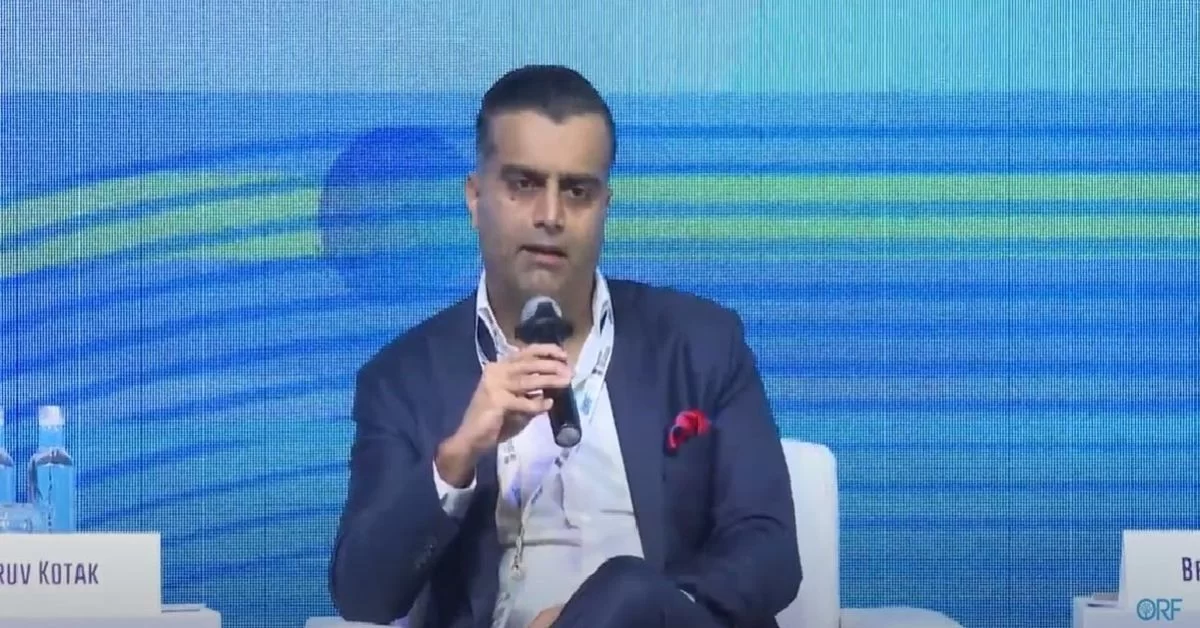Transforming Alang: Dhruv Kotak Calls for Global-Standard Ship Recycling and Repair Infrastructure
At the India Maritime Week 2025, J.M. Baxi Group’s Managing Director, Dhruv Kotak, called for a transformative new model to make India’s ship recycling and repair ecosystem globally competitive, environmentally sustainable, and future-ready. Speaking during the “Ship Breaking and Ship Repair” session, Kotak urged policymakers, industry leaders, and stakeholders to come together to develop next-generation infrastructure at Alang, the world’s largest ship recycling hub.

He emphasised that India must bridge the compliance and infrastructure gap between the Hong Kong International Convention for the Safe and Environmentally Sound Recycling of Ships (HKC) and the EU Ship Recycling Regulation (EUSRR) to attract high-value projects from global shipowners.
Kotak observed that India’s ship recyclers have made remarkable progress in compliance and capacity, but structural gaps remain between HKC and EU standards. “While Indian yards have achieved significant milestones in safety, environment management, and certification, the next leap requires infrastructure capable of meeting stringent EU norms,” he said.
He made it clear that the goal should not be to replicate existing facilities, but to develop world-class infrastructure — including slipways, dredged access channels, ship-lift systems, and integrated logistics corridors — designed to meet global benchmarks. Such an approach, he noted, would enable India to attract ships that are currently being sent to newer recycling destinations in the Middle East and beyond.
Calling Alang an “extraordinary ecosystem” for trade, steel recycling, and maritime services, Kotak highlighted its unique geographical advantage and skilled workforce, which make it ideal for establishing a large-scale, modern facility capable of handling up to 150 ships annually.
He noted that Alang’s decades-old cluster has created synergies between ship recyclers, steel re-rollers, logistics providers, and port operators — an ecosystem that few other regions in the world can match. “Alang’s evolution over the past four decades gives India a natural platform to retain its leadership in ship recycling while expanding into ship repair and modular shipbuilding,” he said.
Proposing a shared-use model, Kotak suggested that India develop a common yard complex serving multiple stakeholders — from private recyclers and shipping lines to steel consumers like JSW.
“This integrated yard could evolve into a multi-purpose maritime complex, supporting not just ship recycling but also ship repair, lay-up berths, and limited shipbuilding activities,” Kotak explained. “Such a facility would foster a circular economy for maritime assets — extending their life, reusing materials, and reducing waste.”
Kotak pointed out that major global shipping companies, including Maersk, are exploring new recycling destinations such as Bahrain, Abu Dhabi, and Oman, yet continue to depend heavily on Indian labour and downstream markets.
“India’s competitive edge lies in its people, supply chains, and market linkages,” he said. “If we can establish EU-compliant facilities domestically, we will not only retain value within the country but also prevent inefficiencies in global logistics.”
He stressed that developing such facilities in India would allow the nation to capture end-to-end value, from ship recycling and steel recovery to re-use in shipbuilding and construction industries — creating a self-reinforcing maritime economy.
Looking ahead, Kotak predicted the arrival of a 10- to 15-year ship recycling super-cycle, driven by the retirement of aging fleets and environmental compliance pressures in the shipping industry.
He urged both policymakers and private players to act swiftly to expand capacity before global demand peaks. “We have a limited window to build the capability that will serve us for decades. India must be ready before the wave arrives,” he cautioned.
Kotak emphasised that such capacity-building efforts must align with the government’s forthcoming Shipbuilding and Ship Repair Policy, ensuring coherence between ship recycling, repair, and steel reuse sectors. By linking these areas, India could establish a sustainable and circular maritime industry that supports both economic growth and environmental stewardship.
Kotak’s remarks reflect a strategic shift in how India views ship recycling — not just as an end-of-life process, but as part of a comprehensive maritime value chain.
He argued that India’s future lies in innovation, integration, and global alignment. With the right policy framework and infrastructure investments, Alang could become not only a recycling hub but also a maritime technology and sustainability centre serving the global shipping industry.
“The next generation of ship recycling will not be defined by how many ships we dismantle,” Kotak concluded, “but by how efficiently, safely, and sustainably we transform those assets into new value for the economy.”
Key Highlights:
-
Dhruv Kotak calls for next-generation, EU-compliant infrastructure at Alang.
-
Emphasises bridging the gap between HKC and EU ship recycling frameworks.
-
Proposes shared-use, multi-purpose yard serving recyclers, shipping lines, and steel users.
-
Alang’s geography and workforce make it ideal for large-scale modernisation.
-
Predicts a 10–15 year global ship recycling super-cycle.
-
Advocates for policy alignment between ship recycling, repair, and steel reuse.
By modernising Alang’s infrastructure and aligning it with global standards, India stands poised to lead the next era of sustainable maritime transformation.
Author: shipping inbox
shipping and maritime related web portal









